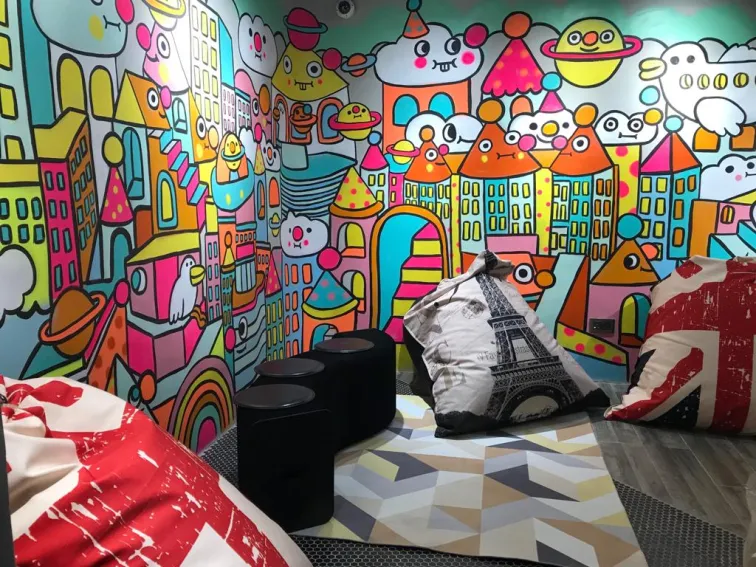
Co-living offers a communal alternative to cold and costly Hong Kong
Young professionals can rent beds for around HK$3,500 to HK$5,500 each.
When the Synergy Group launched their second co-living project in HK, the Bibliotheque, one key improvement they were keen to implement from their first property was to add more spaces for their residents to interact and collaborate. For one of the first co-living developers in the territory, creating a living space conducive to community building is at the core of what is driving university students and young professionals to rent bunk beds and single beds for around HK$3,500 to HK$5,500 each, respectively. The strategy of offering relatively cheaper accommodation options in a city with sky-high rents and enabling younger residents to become part of a close-knit community has enabled the developer’s newest 166-bed project to reach 50% occupancy as of November, with hundreds of other applicants still waiting in line.
“What we offer is an atmosphere for them to get to know each other,” said Joey Hui of Synergy Group. “We notice that part of the application, the residents say they want to meet some people or learn new skills from other residents living in the building.”
Synergy Group expects increased demand for co-living spaces in the coming years, and the developer is now looking for other properties, particularly old tenement buildings in the downtown area which have been ideal and have low utilisation rates, that they can turn into their next projects.
A new way of living
“Co-living is a form of housing where residents share living space and a set of interests and values. It is part of a modern, urban lifestyle that values openness and sharing, and aligns with the general shift toward ridesharing, carsharing and coworking,” said Myles Huang,director of research in Asia Pacific Capital Markets, JLL. “Co-living can be seen as an extension of the co-working trend that see people share office space and common facilities in order to save costs and share ideas,” he added, citing students, startup founders and employees, young professionals, and artists and creatives as the groups most inclined to rent a co-living space.
“We see very strong interest in the co-living concept in cities with growing wave of millennial workers and travellers, and hubs that attract technopreneurs, startups and the creative industries,” which includes HK, says Huang. “Rising accommodation costs also play a part. Many singles, students or young workers find conventional apartments out of their reach because of high rents, deposits and furnishing costs. Although pricings of co-living space are quite diverse, they are generally more affordable.”
In HK, co-living spaces cost US$600/bed (HK$4700) to rent per month and the average facility size is at around 190 beds as average facility size, based on JLL’s compilation of news articles and websites of co-living hub operators.
Yoan Kamalski, CEO and founder of co-living space Hmlet, which operates in Singapore and has plans to expand in Hong Kong due to the demand in the island.
“People are lonely; we are not only looking for an affordable place to live, but somewhere that can empower us, somewhere with a community that is curated and brings our greater selves out. We want a place that is flexible, yet make us feel like home within the first night,” he said.
“I believe Singapore and Hong Kong is moving towards this new trend. Many studies show that humans are happier and more fulfilled thanks to the connections and people in their lives, not so much because of money, success or fame,” he added.
With this in mind, Kamalski made it a point to make design a differentiator for Hmlet’s co-living space, and sought out the kind of visual design and living environment features that would allow residents feel creative and happy. Hmlet properties are fully furnished and provide on- demand services like cleaning, ironing and there are even plans to offer chef cooking for members.
Along with the focus on getting the design and amenities right, Hmlet also uses technology to integrate personality matching tests with the onboarding process to ensure compatibility between members that are sharing the co-living space.
“We are a tech-powered space as a service model provider. We want to take co-living beyond shared spaces and build a community,” said Kamalski. “Co-living will re-shape the way we are living and the way we see real-estate for long term stay. It is helping people balance their lifestyles, finances and natural desire to connect.”



















 Advertise
Advertise






